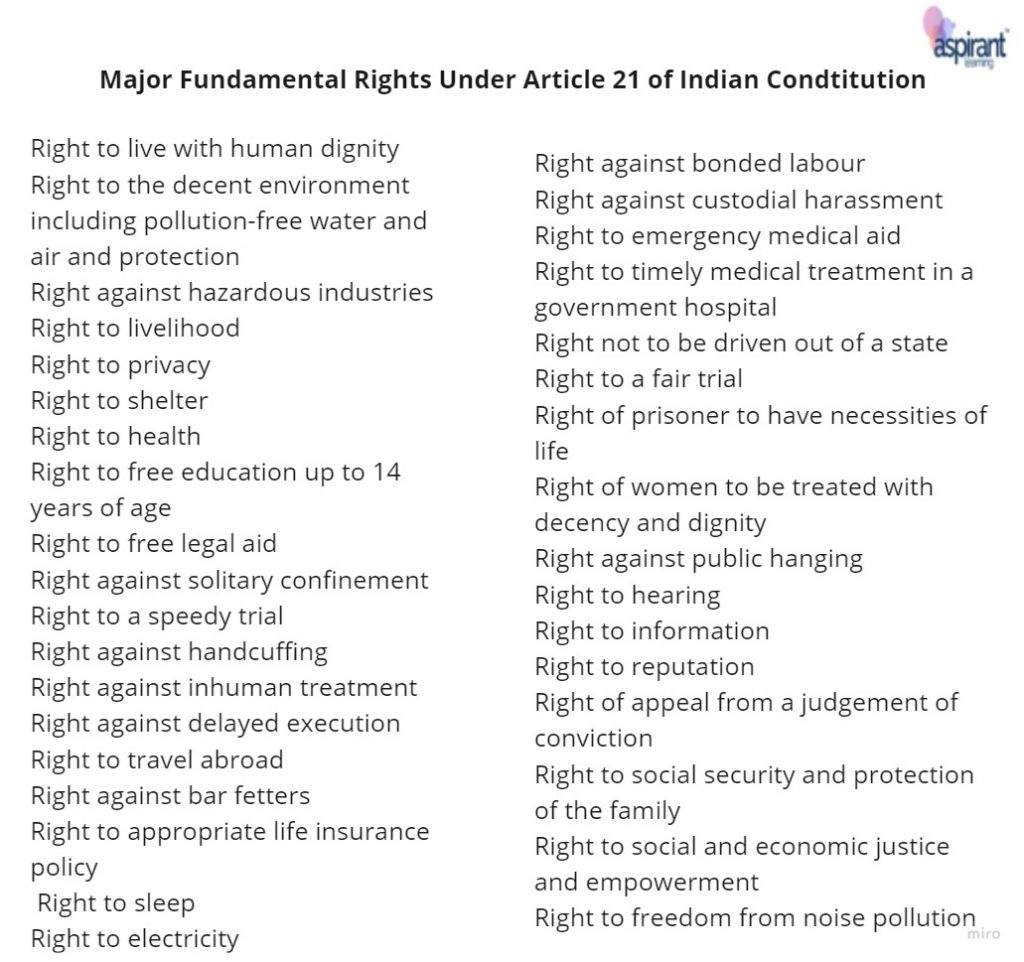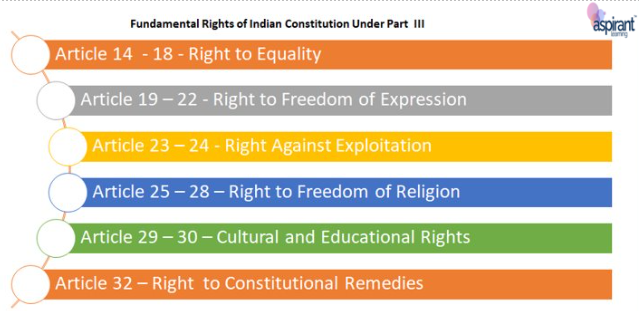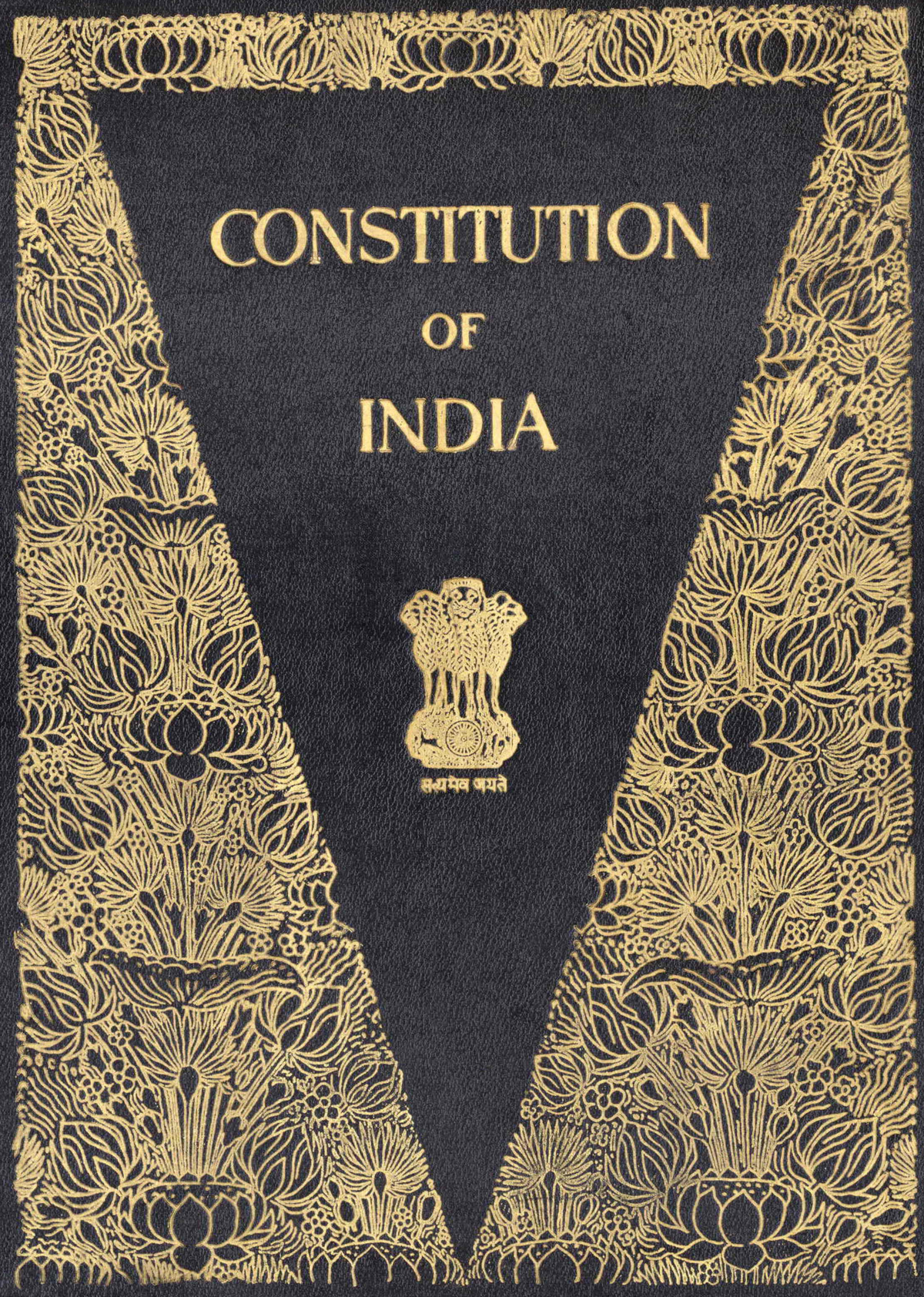Key Takeaways
- The Supreme Court upheld that the right of an individual against forcible vaccination and its violation of Article 21 of Indian constitution. The government’s COVID-19 vaccination policy to protect communitarian health, but found certain vaccine mandates imposed by the State governments and Union Territory administrations disproportionate as they tend to deny access to basic welfare measures and freedom of movement to unvaccinated individuals .
- The court struck a balance between individual right to bodily integrity and refusing treatment with the government’s concern for public health. A person has the right under Article 21 to refuse treatment
- The judgement was a result of a challenge by Jacob Puliyel, a former member of National Technical Advisory Group on Immunization.
Article 21 of Indian Constitution : Protection of Life and Personal Liberty
- “No person shall be deprived of his life or personal liberty except in accordance with procedures established by law.”
- The Constitution’s Article 21 defines “life” as more than just the act of breathing. It does not entail a life of drudgery or a merely animal existence.
- Article 21’s fundamental goal is to ensure that when the state takes away a person’s right to life or liberty, it does so only in compliance with the law.
- Part III of the Indian Constitution contains Article 21, which is a fundamental right.
- All citizens, as well as non-citizens, have access to this right.
- This right has been called the “heart of fundamental rights” by the Supreme Court, and it cannot be suspended in an emergency.
- Major Rights Places under Article 21

Article 21 of Indian Constitution and Related Judicial Interpretations
- AK Gopalan Case
- As evidenced by the AK Gopalan case, Article 21 had a rather restricted scope until the 1950s.
- In this decision, the Supreme Court decided that the word “procedure established by law” in the Constitution meant “personal liberty” in the British sense rather than “due process” in the American one.
- Maneka Gandhi vs. Union of India (1978)
- The Gopalan decision was overturned in this case. According to the Supreme Court, Articles 19 and 21 are not watertight compartments.
- The idea of personal liberty in Article 21 comprises a wide range of rights, some of which are enshrined in Article 19 and given “extra protection.”
- The court went on to rule that a statute falling under Article 21 must also comply with Article 19’s requirements. That means any legal technique for taking someone’s life or liberty must be just, reasonable, and arbitrary.
- Francis Coralie Mullin vs. Union Territory of Delhi (1981)
- Any procedure for depriving a person of his or her life or liberty must be rational, fair, and just, rather than arbitrary, whimsical, or fanciful, according to the court.
- Olga Tellis vs. Bombay Municipal Corporation (1985)
- This ruling reiterated the previous view that any procedure that could deprive someone of their fundamental rights must adhere to fairness and justice principles.
- State of Andhra Pradesh vs. Unni Krishnan (1993)
- The Supreme Court supported the enlarged interpretation of the right to life in this instance.
About Other Fundamental Rights

Content Source : The Hindu



